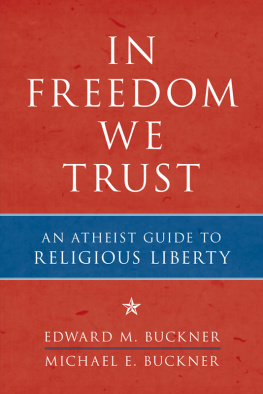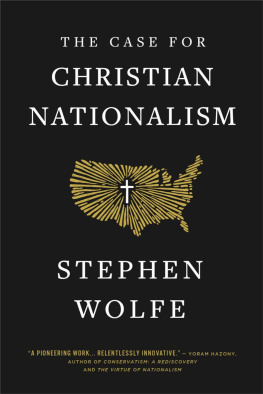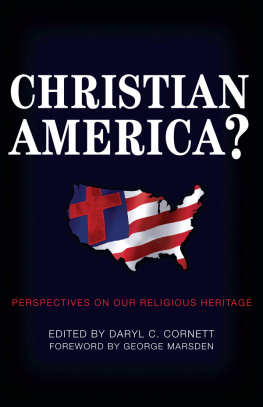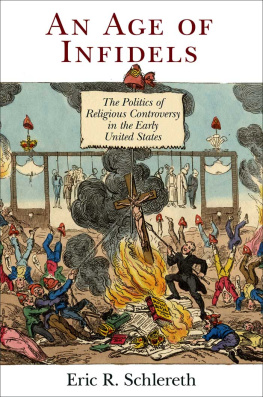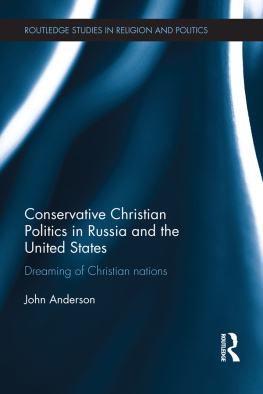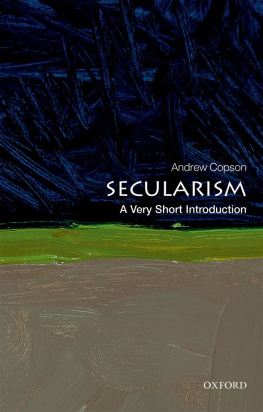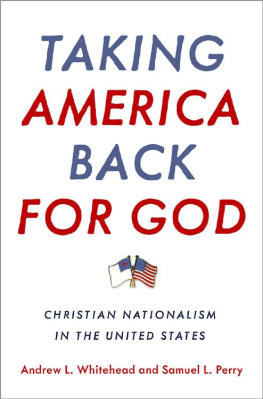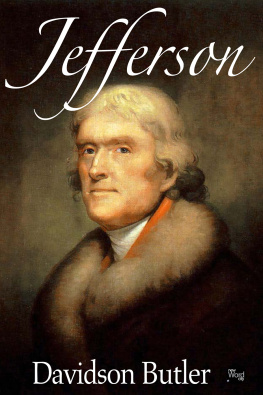Published 2012 by Prometheus Books
In Freedom We Trust: An Atheist Guide to Religious Liberty. Copyright 2012 by Edward M. Buckner and Michael E. Buckner. All rights reserved. No part of this publication may be reproduced, stored in a retrieval system, or transmitted in any form or by any means, digital, electronic, mechanical, photocopying, recording, or otherwise, or conveyed via the Internet or a website without prior written permission of the publisher, except in the case of brief quotations embodied in critical articles and reviews.
Trademarks: In an effort to acknowledge trademarked names of products mentioned in this work, we have placed or after the product name in the first instance of its use in each chapter. Subsequent mentions of the name within a given chapter appear without the symbol.
Cover design by Grace M. Conti-Zilsberger
Inquiries should be addressed to
Prometheus Books
59 John Glenn Drive
Amherst, New York 142282119
VOICE: 7166910133
FAX: 7166910137
WWW.PROMETHEUSBOOKS.COM
16 15 14 13 12 4 3 2 1
Library of Congress Cataloging-in-Publication Data
Buckner, Ed.
In freedom we trust : an atheist guide to religious liberty / by Edward M. Buckner and Michael E. Buckner.
p. cm.
Includes bibliographical references and index.
ISBN 9781616146443 (pbk. : alk. paper)
ISBN 9781616146450 (ebook)
1. LibertyReligious aspects. 2. United StatesReligion. 3. Religion and politicsUnited States. 4. Religious toleranceUnited States. I. Buckner, Michael E. II. Title.
BL2525.B843 2012
323.44'20973dc23
2012025636
Printed in the United States of America on acid-free paper
For Diane


Is there Nothing New Under the Sun? That could almost have served as the title of this book. Consider:
- The president of the United States is attacked by political opponents for not being a real Christian, first as a candidate, then as president.
- That same president is heavily criticized for engaging in war against Libyans without a congressional declaration of war.
- The United States and Americans are violently attacked by Muslim extremists.
- Bitter political arguments and angry fights erupt over whether the United States is or should be a Christian nation and whether our government is based on Christian principles.
- Legislators in the Virginia House of Delegates wrangle over proposed laws alleged to protect religious expression.
- Political hay is madeor at least soughtover American exceptionalism, over whether this nation was established by acts of God and therefore set aside for divine purposes and approval.
- Middle Easterners rise up in arms over what forms their own governments should take, with religious differences often at the heart of the emotions running high; Tripoli is frequently in the news.
All of the above come straight from current or recent news stories. But all also describe events or stories from many years earlier in American history, and the parallels are not just coincidences. Nor are any of these merely matters of abstract, theoretical, or academic interestlives are changed, even lost, in the conflicts; freedom and perhaps even national survival are also imperiled or strengthened by sectarian strife.
President Barack Obama, like President Thomas Jefferson before him, and like other 2012 presidential candidates, has struggled politically with his ability to counter claims that he is not a good Christian. on Obama and other current political leaders in chapter 3.) In the election of 1800, according to James F. Simon,
Federalists charged that a Jefferson presidency threatened to destroy Americas soul. Voters had only to ask one question of themselves, suggested the leading Federalist newspaper, the Gazette of the United States: Shall I continue in allegiance to Godand a religious President, or impiously declare for Jeffersonand no God!
Simon went on to discuss Federalist attacks predicting moral chaos or worse in the nation if Jefferson were to be elected. Edward J. Larson described the election in detail in his book A Magnificent Catastrophe: The Tumultuous Election of 1800, Americas First Presidential Campaign. As Larson noted, Hamilton and the Federalists repeatedly warned that Republican [roughly the equivalent then of todays Democrats; Jeffersonians] rule might lead to... attacks on churches in America.
Robert Bentley, who became governor of Alabama in January 2011, caused an uproarand eventually apologizedbecause he declared not long after he was inaugurated that anybody... who has not accepted Jesus Christ as their savior, Im telling you, youre not my brother and youre not my sister.
Local elected officials across America entangled their religion with their electionsor paid a political price for not doing so. A judge in Bowie County (Texarkana), Texas, proclaimed (at his inauguration in early 2011) that he did officially hereby dedicate to the Lordship of Jesus Christ Bowie County Texas and the civil government thereof.
Texas is not the only part of the United States where leaders assume that fundamentalist Christianity ought to be promoted by elected officials, but it certainly is a state where the idea, including the idea that the whole nation should be dedicated to Christ, is widespread. And Texas has helped contribute these bogus ideas to the whole nation, through President George W. Bush and othersand threatens to do so again. Recently Texas governor Rick Perry (candidate, for a while, for the 2012 Republican nomination for president) declared that Right now, America is in crisis: we have been besieged by financial debt, terrorism, and a multitude of natural disasters. As a nation, we must come together and call upon Jesus to guide us through unprecedented struggles, and thank Him (For more on Rick Perry and his entanglement with fundamentalist Christianity, see chapter 3, Religion and Politics Now.) Perry, like many others who are acceptedelected, in fact, to high officeby thousands of Americans, has no apparent understanding of or respect for the logic and history of American secularism.
The constitutional guarantee that no religious test shall ever be required as a qualification to any office or public trust under the United States (Article VI) failed to prevent the political tests any of these leaders faced or invited. As Ray Suarez noted, Voting for the most religious candidate on Election Day or counting a less publicly religious posture against a candidate when making ones decision may make an individual voter feel better, while saddling the entire community with an elected official who is religious, and incompetent.
Violent attacks on Americans by men claiming to act on behalf of Allah plagued usas well as Muslims in generalin the 1790s as surely as in 2001. A treaty agreed to while George Washington was still president and ratified after John Adams succeeded him reassured an Islamic nation that our government is not based on Christianity and that Muslims were safe from religious-based wars with the United States (see chapter 8, From the Shores of Tripoli..., for details).
Sarah Palin declared on Fox News though he never made clear what principles he meant. The argument Palin and Gingrich make started before either of themor the United States itselfwas born. (More on the careless declarations of recent American national candidates, including Palin and Gingrich, in chapter 3. Still more on Gingrich in chapter 4.)

